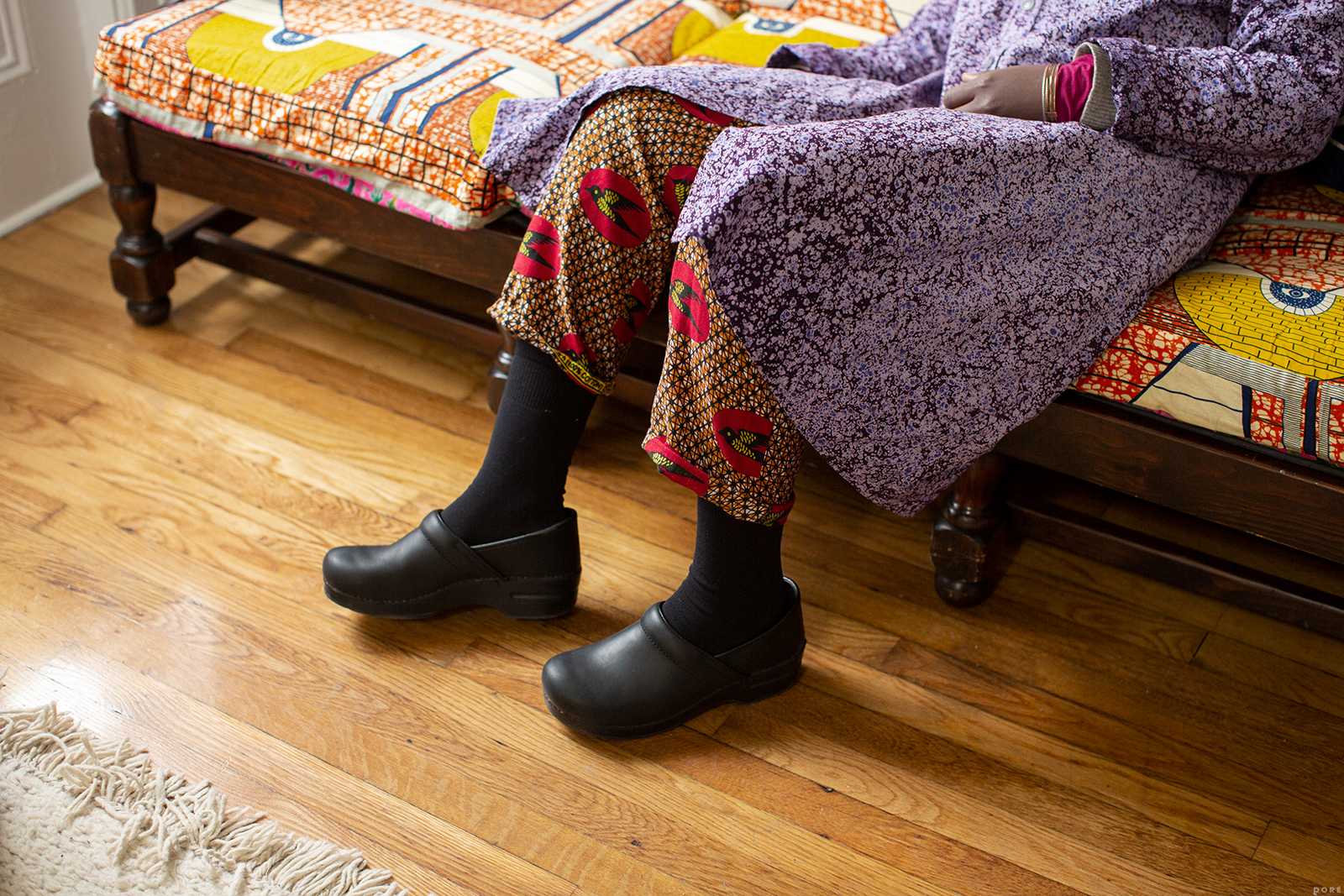A Street Style with Fahari Wambura
6 years ago by
Fahari is one of the amazing women we met during our time upstate! Hailing from Tanzania, she has made a home out of Hudson and a career out of bringing the work and wears of African artisans to her adopted town.
She is the founder and owner of Fahari Bazaar. Her quiet fortitude, effervescent kindness, and love of prints have made her a beloved and integral member of the community.
Meet Fahari and enjoy another Sunday in Hudson!
Describe your personal style in three words.
Simple cuts that are functional and comfortable to wear.
Who / what are your biggest influences?
My sense of style is inspired by regular African women who I see at markets and on the streets back home in Tanzania. These women, who mix and match prints and colors, have taught me that there are no rules to fashion/ style–that you get to decide for yourself what is and what is not stylish. So, I wear and mix any colors and prints, as long as it works for me and I feel comfortable.
My mother’s sense of style has also been a big influence. She dressed very simply, but always looked striking. From her, I learned that one need not make too much of an effort to look great.
What inspired you to open Fahari Bazaar?
I imagined a space with beautiful handmade products from all over the world, a space where I could showcase and promote things made in Tanzania. My feeling was that we were slowly losing our cultural heritage, due to cheap products being made in sweatshops. I wanted to remind people of the beautiful handmade products that were available in Tanzania, while also supporting local makers and artisans. My hope was that people would grow to see the value and stories that these products carry.
When I moved to the US, it was important to me to have a space where I could share stories of where I came from with others, and open up conversations about cultural experience. But most importantly, I wanted a space where everyone could come and feel welcome and acknowledged.


What is your process for sourcing pieces and working with artisans in Africa? What is your relationship like with the men and women whose products you patron?
I have been working with the same group of tailors and seamstresses for the last four years, and they are the backbone of the Fahari Bazaar clothing line. Every winter I go back home to Dar es Salaam with my ideas, drawings and prototypes of what I would like made. We all sit down together and figure out how to bring these ideas to life.
Also in Dar es Salaam, I source leather sandals and Kikoy cloth from Ras Mizizi, who is a longtime friend.
I source baskets from villages in the Iringa and Njombe regions in Tanzania. I go to these villages to buy directly from the women who weave them. Since it takes weeks to make some of the larger baskets, I buy from many different women in the villages.
Everyone that I work with are people that I consider close friends. We are like a family. We talk often on the phone, we encourage each other to do better, and each one of us does their best to see our collective grow. We love and respect each other.
What do you love about being a part of this group of women-owned small-businesses in Hudson?
First of all, it is inspiring to know that most of the small businesses in Hudson are owned by women! But, what I love most about being part of this group of women-owned small businesses is the support and encouragement I get, and the friendship we share.
These women understand the challenges of owning a business, and they know quitting is never an option. Whenever I feel like I am spinning my wheels, I talk to them and I am reassured that whatever challenges I face in business, others are experiencing the same too.




























































This story brought me back to my amazing trip to Tanzania where I commisioned a local seamstress to make a robe from colorful fabric I bought from a local bazaar. I also bought a bunch of leather sandals with beading. The workmanship is excellent and the people warm and friendly. I loved Dar es Salaam (Sea Splash resort) and surrounding areas. If I get the chance I’ll visit her shop in N.Y.
I absolutely LOVE how Fahari mixed the patterns in her outfit! I’ve always loved the vibrant, colorful outfits of the African men and women in and around my neighborhood, and in the braiding salons.
Yes to color! Yes to the collective approach! Yes to comfort! Thank you for sharing.
*_*
When I first saw the photo of Fahari I was struck by what an incredibly kind face she has. Wonderful woman, wonderful ethic, wonderful store! Long may it continue!!